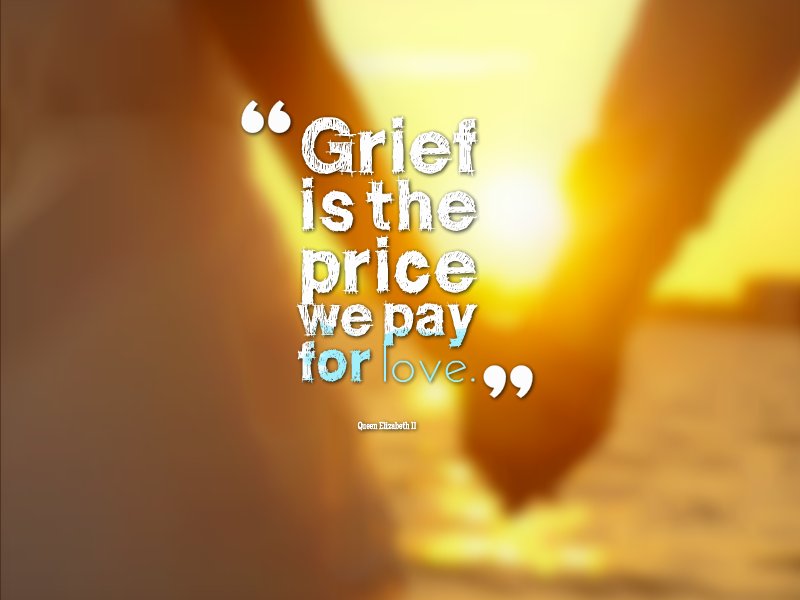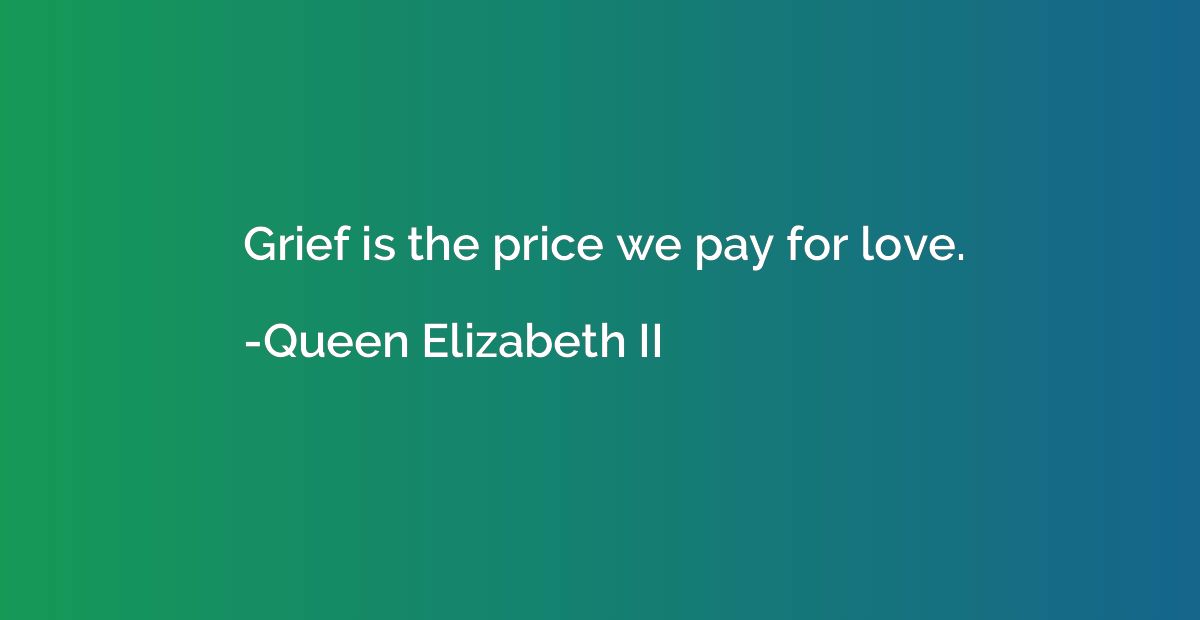You’ve probably heard it before—grief is the price we pay for love. But what does that even mean? Is it just a poetic way to make heartbreak sound less painful, or is there some deep truth behind those words? If you’ve ever felt the ache of losing someone or something you deeply cared about, you know this isn’t just a saying. It’s a reality that many of us face at some point in life. Grief isn’t easy, but it’s a testament to how much we’ve loved.
Let’s be real here. Love can bring us the most incredible highs, but it can also lead to the lowest lows when things don’t go as planned. Grief is that shadow side of love, the part where we have to confront loss, change, and the impermanence of life. Whether it’s losing a loved one, ending a relationship, or even saying goodbye to a dream, the pain is real. And yet, it’s a price we willingly pay because love is worth it.
In this article, we’re going to dive deep into the concept of grief as the price of love. We’ll explore why love and loss are so intertwined, how we can navigate the grieving process, and why embracing grief can actually help us grow. So grab a cup of coffee (or wine, no judgment), and let’s unpack this together.
Read also:Green Bay Marketplace Your Ultimate Shopping Destination
Table of Contents
- What is Grief?
- Love and Loss: The Inseparable Duo
- The Stages of Grief
- Why Grief Matters in the Context of Love
- Coping with Grief: Practical Tips
- Finding Meaning in Grief
- Mental Health Support for Grieving Hearts
- How Grief Affects Relationships
- Celebrating Love Amidst Grief
- Conclusion: Embracing the Price of Love
What is Grief?
Grief isn’t just one thing—it’s a complex emotional response to loss. It’s that heavy feeling in your chest when you realize something or someone you cherished is no longer a part of your life. Grief can show up in different ways for different people. Some might cry uncontrollably, while others might feel numb. There’s no right or wrong way to grieve; it’s a deeply personal experience.
But why do we grieve? At its core, grief is our heart’s way of processing love. When we lose someone or something we care about, it’s natural to feel the absence. Grief is the price we pay for love because it’s a reminder of how much we valued that person, relationship, or experience. Without love, there wouldn’t be grief—and that’s both a blessing and a burden.
Types of Grief
Grief isn’t a one-size-fits-all experience. Here are a few common types:
- Normal Grief: The typical response to loss, like feeling sad after a breakup or missing a loved one who passed away.
- Complicated Grief: When grief feels overwhelming and doesn’t seem to ease with time.
- Anticipatory Grief: The sadness you feel when you know a loss is coming, like when a loved one is terminally ill.
Love and Loss: The Inseparable Duo
Love and loss go hand in hand, whether we like it or not. Think about it—every time you fall in love, you’re opening yourself up to the possibility of heartbreak. But here’s the thing: love is worth it. Even though the pain of loss can be unbearable, it’s a testament to how much you cared.
Loss doesn’t always mean death. It can be the end of a relationship, the loss of a job, or even the fading of a childhood dream. Each of these losses carries its own weight, but they all share one thing in common—they remind us of how much we invested in love.
Why Love Makes Us Vulnerable
When we love deeply, we become vulnerable. We open ourselves up to joy, but also to pain. That’s because love requires trust, connection, and emotional investment. And when those things are taken away, it hurts. But vulnerability is also what makes love so powerful. Without it, we’d never experience the beauty of connection.
Read also:Atlanta Motor Speedway The Ultimate Racing Experience
The Stages of Grief
Psychologist Elisabeth Kübler-Ross famously outlined five stages of grief: denial, anger, bargaining, depression, and acceptance. These stages don’t always happen in order, and some people might skip stages altogether. But they provide a helpful framework for understanding the grieving process.
Breaking Down the Stages
- Denial: “This can’t be happening.”
- Anger: “Why me? Why did this happen?”
- Bargaining: “If only I had done things differently…”
- Depression: Feeling overwhelmed by sadness and loss.
- Acceptance: Coming to terms with the reality of the loss.
Remember, these stages aren’t linear. You might bounce back and forth between them, and that’s okay. Grief is messy, and that’s part of what makes it so human.
Why Grief Matters in the Context of Love
Grief might feel like a burden, but it’s also a sign of how much we’ve loved. When we grieve, we’re honoring the memories and connections we shared with someone or something. It’s a way of saying, “You mattered to me.”
Grief also teaches us resilience. It’s not about forgetting the past but learning how to carry it with us as we move forward. By facing our grief head-on, we can grow stronger and more compassionate people.
The Role of Empathy in Grief
Empathy plays a huge role in grief. When we share our pain with others, we create a sense of community. We realize we’re not alone in our struggles, and that can be incredibly healing. Whether it’s talking to a friend or joining a support group, connecting with others can help us navigate the grieving process.
Coping with Grief: Practical Tips
Grieving is hard work, but there are things you can do to make it easier. Here are a few practical tips:
- Allow yourself to feel your emotions, even if they’re uncomfortable.
- Lean on your support system—friends, family, or a therapist.
- Practice self-care by eating well, exercising, and getting enough rest.
- Create rituals or traditions to honor the person or thing you’ve lost.
- Write in a journal to process your thoughts and feelings.
Remember, there’s no timeline for grief. Some days will be harder than others, and that’s okay. Be patient with yourself as you navigate this journey.
When to Seek Professional Help
If your grief feels overwhelming or is interfering with your daily life, it might be time to seek professional help. Therapists and counselors can provide support and guidance as you work through your emotions. There’s no shame in asking for help—it’s a sign of strength, not weakness.
Finding Meaning in Grief
Grief doesn’t have to be all-consuming. While it’s important to honor your pain, it’s also possible to find meaning in the experience. Many people use grief as a catalyst for growth, using their pain to inspire positive change in their lives.
For example, some people start charities or volunteer in honor of a loved one. Others use their experiences to connect with others who are grieving. Finding meaning in grief doesn’t erase the pain, but it can give it a purpose.
Turning Pain into Purpose
Here are a few ways to transform grief into something meaningful:
- Start a blog or write a book about your experience.
- Join a support group and share your story with others.
- Take up a new hobby or passion that honors the memory of your loved one.
Mental Health Support for Grieving Hearts
Mental health support is crucial for anyone navigating grief. Whether it’s therapy, medication, or simply talking to a trusted friend, there are resources available to help you through the toughest times.
One study found that people who received therapy after a loss reported feeling less depressed and more able to cope with their emotions. Another study highlighted the importance of peer support groups, where people can connect with others who understand what they’re going through.
Self-Care for the Soul
Self-care isn’t just about bubble baths and candles (though those can help!). It’s about taking care of your mind, body, and spirit. Here are a few ways to practice self-care during grief:
- Meditate or practice mindfulness to stay grounded.
- Spend time in nature to connect with the world around you.
- Engage in creative activities like painting, writing, or playing music.
How Grief Affects Relationships
Grief doesn’t just affect the person experiencing it—it can also impact their relationships with others. Friends and family might feel unsure of how to help, while partners might struggle to understand what their loved one is going through.
Communication is key in navigating grief within relationships. Be open about your needs and feelings, and don’t be afraid to ask for support. At the same time, remember that everyone grieves differently, and it’s okay if your process looks different from someone else’s.
Building Bridges in Grief
Here are a few tips for maintaining relationships while grieving:
- Express your feelings honestly, even if it’s difficult.
- Set boundaries if you need time to yourself.
- Find ways to involve loved ones in your grieving process, like sharing memories or creating a tribute.
Celebrating Love Amidst Grief
Grief doesn’t have to overshadow the love we feel for someone or something. In fact, celebrating that love can be a powerful way to honor the person or experience we’ve lost. Whether it’s through storytelling, creating art, or simply holding onto cherished memories, there are countless ways to keep love alive.
One idea is to create a memory box filled with photos, letters, and other mementos. Another is to host a gathering with friends and family to share stories and laughter. These acts of celebration remind us that love never truly dies—it just takes on a different form.
Conclusion: Embracing the Price of Love
Grief is the price we pay for love, but it’s a price worth paying. Love brings us joy, connection, and meaning, even if it also brings pain. By embracing grief as part of the human experience, we can learn to navigate it with grace and resilience.
So the next time you feel the ache of loss, remember this: it’s a testament to how much you’ve loved. And while the journey might be hard, it’s also an opportunity for growth, connection, and transformation. Share your story, lean on your support system, and don’t be afraid to ask for help when you need it.
And hey, if this article resonated with you, don’t forget to leave a comment or share it with someone who might benefit from reading it. Together, we can create a community that supports each other through the highs and lows of love and loss.


.jpg?ssl=1)